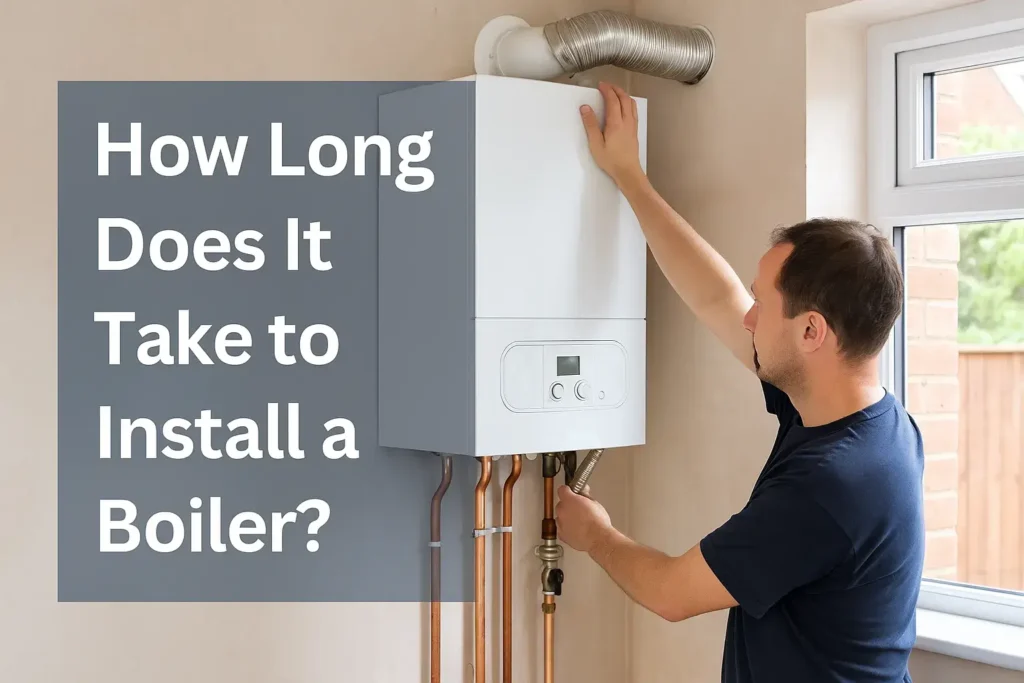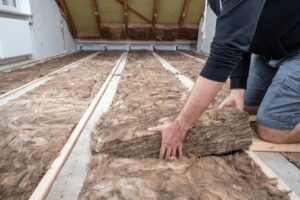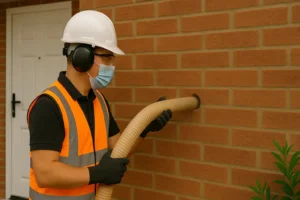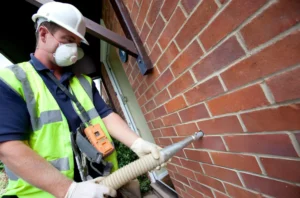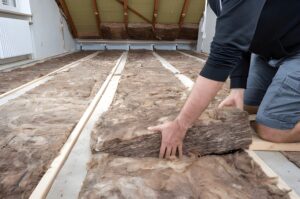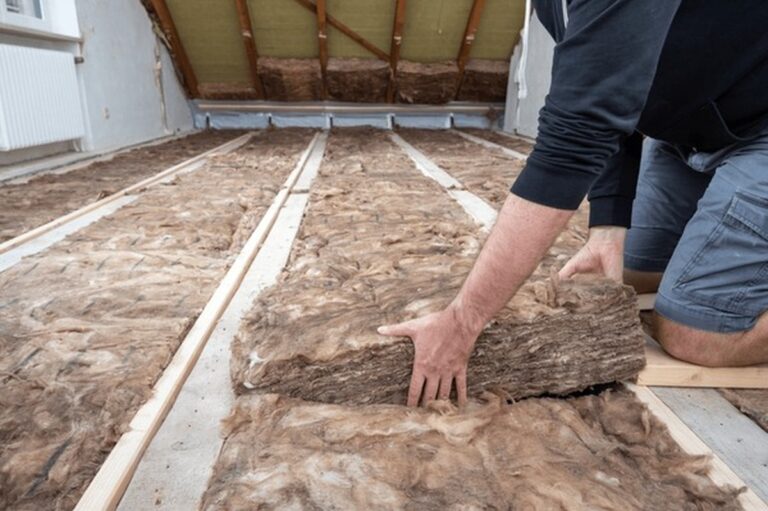Most boiler installations in the UK take between 4 hours and 3 days, depending on the job. A like-for-like combi boiler swap in the same position can usually be completed within 4–6 hours, while more involved projects, such as converting a system boiler to a combi or removing an old back boiler, tend to take 2–3 days. If you’re fitting an entirely new central heating system with radiators and pipework, the process can stretch to a week or longer.
Table of Contents
ToggleThe exact time frame depends on several factors, including the type of boiler you choose, whether it needs relocating, the condition of existing pipework, and any extra work such as power flushing or thermostat upgrades. The good news is that in most straightforward cases, heating and hot water are back up and running the very same day.
So, how do you know which time frame applies to your home? Let’s break down the different installation scenarios in more detail.
1. Typical Boiler Installation Times in the UK
While every home is different, most boiler installations fall into clear categories. Understanding these scenarios helps you set realistic expectations and plan around any disruption. Here’s a quick comparison table so you can see at a glance:
| Boiler Installation Scenario | Typical Duration |
|---|---|
| Straight combi-to-combi swap (same location) | 4 – 6 hours |
| Boiler relocation (different room/area) | 1 – 2 days |
| System or regular boiler to combi conversion | 2 – 3 days |
| Back boiler replacement | 2 – 4 days |
| Completely new central heating system | 5 – 7 days+ |
I. Straight Combi Swap (Same Location) – 4 to 6 Hours
The quickest and most common installation is a combi-to-combi replacement in the same position. Because the pipework, flue, and connections are already in place, the engineer simply needs to remove the old unit, fit the new boiler, reconnect the system, and test it. On average, this takes half a day (4–6 hours). Many homeowners can have hot water and heating restored the very same evening.
II. Boiler Relocation – 1 to 2 Days
If you’re moving the boiler to a different room, expect the work to take longer. Relocation means extending or rerouting pipework, adjusting the flue, and sometimes lifting floorboards or drilling through walls. Depending on distance and complexity, a relocation typically adds an extra day to the job. In total, you should allow 1–2 full days.
III. System or Regular to Combi Conversion – 2 to 3 Days
Switching from a traditional boiler with tanks and cylinders to a modern combi is a bigger job. The engineer needs to:
- Remove the hot water cylinder and cold-water tank
- Reconfigure the pipework for mains-fed hot water
- Install the new combi boiler and connect everything safely
Because of this extra work, most system-to-combi conversions take around 2–3 days. The benefit is space saving and improved efficiency, but it’s worth factoring in the longer timeline.
IV. Back Boiler Replacement – 2 to 4 Days
Back boilers, often hidden behind fireplaces, are some of the trickiest to replace. Converting a back boiler to a modern combi can involve removing the old fire unit, capping or replacing the chimney flue, and installing new pipework. Depending on accessibility, this process can take 2–4 days.
V. Completely New Central Heating System – Up to 1 Week+
If your property doesn’t currently have central heating, the installation is more extensive. Alongside fitting a new boiler, the engineer will need to:
- Lay pipework throughout the home
- Install radiators in each room
- Connect the system to mains gas, electricity, and water
- Commission the boiler and test all components
This is effectively a full heating installation, which typically takes 5–7 days in an average-sized home, and longer in larger properties.
2. Factors That Influence Boiler Installation Time
Even with standard timeframes, every home presents its own challenges. The duration of a boiler installation doesn’t just depend on the boiler itself, it’s also shaped by the condition of your current system, the regulations that must be met, and any upgrades you choose to add.
I. Pipework and Gas Supply Upgrades
Modern boilers often require a 22mm gas supply pipe, whereas many older homes still run on 15mm. If your gas supply needs upgrading, this can add an extra half a day to the job. Similarly, if pipework is corroded, poorly sized, or simply not compatible with your new boiler, the installer may need to re-route or replace sections, extending the overall timeline.
II. Boiler Flue Position
The flue must comply with current safety regulations, such as being a safe distance from windows and doors. If your existing flue position doesn’t meet standards, the installer may need to drill through brickwork or extend the flue. This is usually a minor task, but in some cases it can add several hours to a full day.
III. Cleaning the System (Flushing)
To protect a new boiler, engineers often carry out a power flush, chemical flush, or MagnaCleanse. These processes remove sludge, rust, and debris from radiators and pipework. While worthwhile for efficiency and longevity, a full flush can take 3–6 hours depending on the size of the system.
IV. Smart Controls and Filters
Many homeowners take the opportunity to install a smart thermostat (such as Hive or Nest) alongside their new boiler. This typically adds less than an hour to the process. Similarly, fitting a magnetic filter, which helps catch sludge before it clogs your boiler, is a quick add-on but still increases the total job time slightly.
V. Accessibility of the Installation Area
Boilers installed in lofts, tight cupboards, or awkward corners can slow down the engineer’s work. Simply accessing the space safely, lifting heavy equipment, and working in confined conditions can add hours compared to an easily accessible kitchen wall installation.
VI. Seasonal Timing
It might sound surprising, but the time of year can make a difference. In winter, heating engineers are often busier, which can mean longer waiting times for an appointment. Installing a new boiler in summer is often quicker to schedule and less disruptive, since you won’t miss central heating during cold months.
So while a straightforward swap can be done in a matter of hours, these influencing factors can stretch the job over several days. The best way to know your own timeline is to have a Gas Safe engineer survey your home and provide a tailored estimate.
3. How to Prepare for Your Boiler Installation (Minimise Disruption)
Even if the job only takes a day, a bit of preparation makes the process smoother for both you and your engineer.
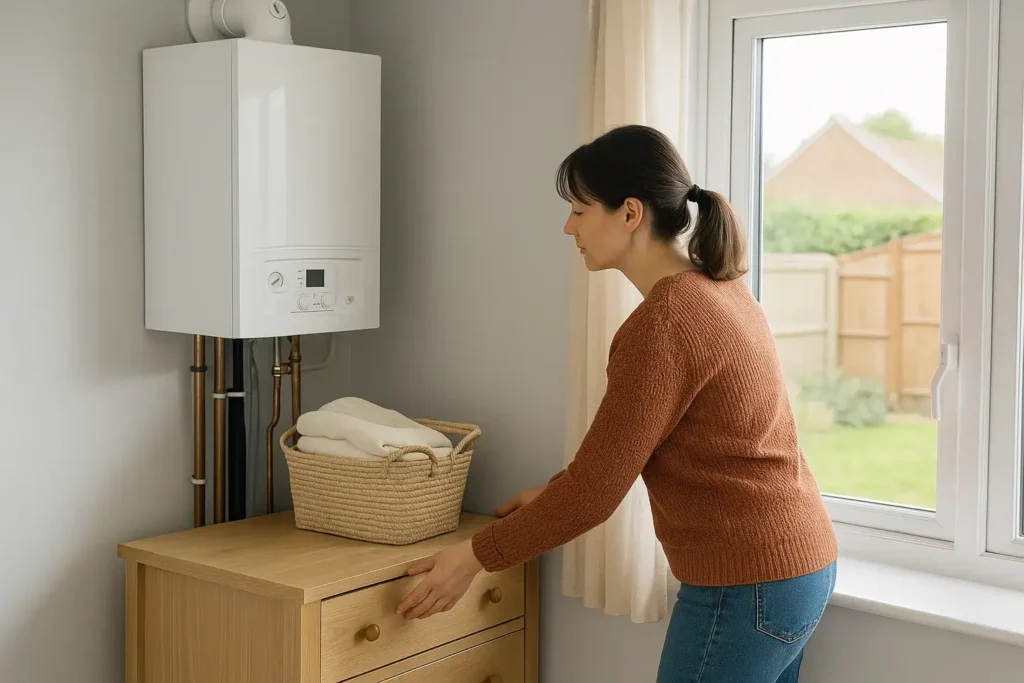
Here are some practical steps:
- Clear the area: Make sure the engineer has easy access to your boiler, airing cupboard, or loft tanks. Move furniture and belongings out of the way.
- Decide boiler type & location in advance: Discuss whether you’re going for a combi, system, or regular boiler, and confirm the location. Moving it later can add days.
- Ask about regulations: Gas Safe rules may require upgrades, such as replacing an old 15mm gas pipe with a 22mm one, or altering the flue route. Clarify this before installation day.
- Schedule in summer if possible: You’re less reliant on heating, which makes downtime easier to manage. Plus, installers often have more availability.
- Plan for temporary disruption: Even if engineers try to restore hot water quickly, be prepared with alternatives (like an electric heater or kettle for hot water).
A little foresight reduces stress and ensures you get your new boiler up and running with minimal fuss.
4. Step-by-Step Boiler Installation Process
Knowing what actually happens on installation day can help you prepare your home and reduce stress. While every property is different, most boiler installations follow a similar sequence:
I. Removal of the Old Boiler
The engineer begins by disconnecting the old boiler safely and draining the system. If you’re converting from a system boiler or back boiler, this step also involves removing the hot water cylinder, cold-water tank, or even a fireplace unit. Depending on complexity, removal can take anywhere from 1 to 4 hours.
II. System Flush or Cleaning
Before the new boiler is connected, the heating system is usually flushed. This ensures that any sludge, rust, or scale doesn’t circulate into the new unit. A power flush or chemical clean improves efficiency and protects your warranty. This step often adds half a day to the process, but is highly recommended.
III. Pipework Upgrades and Preparation
Next, the engineer will check if your gas supply, water pipes, and heating system connections meet current safety standards. Any rerouting, resizing, or upgrading happens at this stage. In conversions (such as system to combi), this is the most time-consuming part and can take a full day or more, depending on how much needs altering.
IV. Installing the New Boiler
Once everything is ready, the new boiler is mounted and connected to your system. This includes linking it to gas, electricity, water pipes, and the flue. If it’s a like-for-like swap, this stage is relatively quick often just a few hours. In more complex cases, it may take a full day.
V. Adding Filters, Thermostats, and Extras
At this stage, optional add-ons are installed:
- Magnetic filter to trap sludge
- Limescale reducer for hard water areas
- Smart thermostat for better heating control
These extras only take an hour or so, but improve performance and efficiency in the long term.
VI. Commissioning the Boiler
With everything in place, the engineer will commission the boiler, essentially testing every function to make sure it’s safe, efficient, and working to manufacturer standards. They’ll check gas pressures, water flow rates, and flue gases to confirm compliance with building regulations.
VII. Handover and Registration
Finally, the engineer will walk you through your new system, show you how to use the controls, and answer any questions. They’ll also handle Boiler Registration with the manufacturer, which activates your warranty, and provide a Building Regulations Compliance Certificate (in the UK this is usually done via Gas Safe).
By the end of this process, you’ll not only have a fully functioning boiler but also peace of mind that your system has been installed to the latest standards.
5. Real-World Homeowner Experiences (Reddit Insights)
When it comes to boiler installations, no two homes are identical, and that’s reflected in the real-world stories shared by UK homeowners. These insights help set realistic expectations:
- “Ours took 1.5 days and was considered fast. The boiler was usable by Day 1, but the second day was for tidying up and paperwork.” (Reddit user)
- “A combi-for-combi swap only took a few hours. But when I converted to a combi from a tank system, it stretched to two full days.”
- “Straight swap was done in half a day, but when they found issues with pipework, it added another day.”
- “Replacing a back boiler took nearly three days, they had to rip out the old fireplace and reroute everything.”
The pattern is clear: while some installations are wrapped up in a single afternoon, more complex jobs (like conversions, relocations, or back boiler removals) can take 2–3 days or more. What matters is that most households have heating and hot water restored quickly, often within the first day, with the remaining time used for finishing, testing, and paperwork.
6. How Long Will I Be Without Heating and Hot Water?
One of the biggest worries for homeowners is being left without heating or hot water. The good news is that in most straightforward installations, such as a combi-to-combi swap, you’ll usually have your boiler up and running the very same day. Even if the engineer returns the next morning to finish pipework, flush the system, or complete paperwork, hot water and heating are typically restored on Day 1.
For more complex jobs, like converting from a system boiler to a combi or replacing a back boiler, expect 1–2 days of partial disruption. Engineers often prioritise getting the boiler functional as quickly as possible, then spend extra time on finishing touches. In very rare cases, such as full central heating installations, you may be without heating for several days, but this is usually planned in advance so you can prepare temporary alternatives.
7. When is the Best Time of Year to Install a Boiler?
Technically, a boiler can be installed at any time of year, but many homeowners choose to replace theirs in spring or summer. The reason is simple: you’re less reliant on heating during warmer months, which makes any downtime far less disruptive.
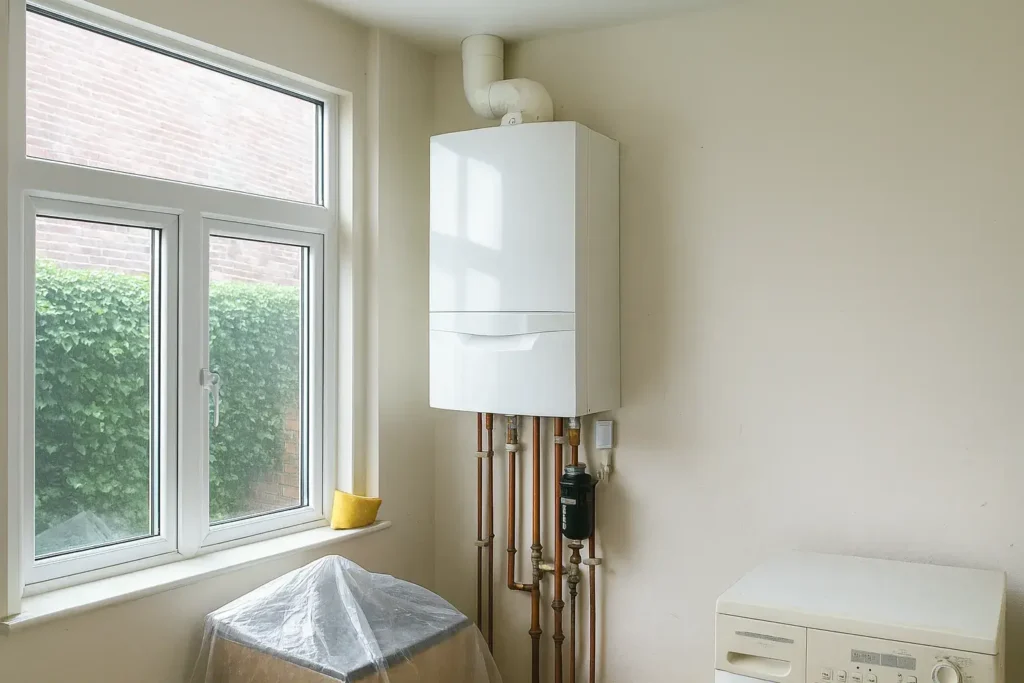
Installers also tend to have more availability outside of peak winter demand, meaning you can book in faster and sometimes even save money. By planning ahead and fitting a new boiler before the cold weather hits, you’ll avoid the stress of an unexpected breakdown in the middle of winter.
If your boiler is old, inefficient, or unreliable, scheduling an installation during summer is often the smartest move.
8. Who Should Install Your Boiler? (Gas Safe Registered Engineers)
No matter how quick or complex the job, safety must always come first. In the UK, it is a legal requirement that all gas boiler installations are carried out by a Gas Safe registered engineer. This protects your home from risks such as gas leaks and carbon monoxide, and ensures your boiler is fitted to the highest industry standards.
At HnR Energy Solutions, all our installers are fully Gas Safe registered and experienced in fitting, servicing, and upgrading boilers under the latest UK regulations. That means when you book your boiler installation with us, you’re not only guaranteed a safe and compliant installation, you also benefit from our expertise in energy-efficient heating solutions through government-backed schemes such as ECO4 and GBIS.
Always check an engineer’s Gas Safe ID card or verify their details on the official Gas Safe Register before work begins. With HnR Energy Solutions, you can skip the worry because we’re already registered and committed to giving you both safety and peace of mind.
Frequently Asked Questions
How long does it take to install a boiler in the UK?
Most boiler installations take between 4 hours and 3 days. A simple combi swap can be done in half a day, while conversions or back boiler replacements usually take 2–3 days.
Can a boiler be fitted in one day?
Yes, if it’s a like-for-like replacement in the same position, most Gas Safe engineers can complete the work and have your heating and hot water running again within a single day.
How long does it take to replace a combi boiler?
A combi-to-combi replacement in the same location typically takes 4–6 hours. Relocating it or upgrading pipework can extend the job to 1–2 days.
Do I need a Gas Safe engineer to fit a boiler?
Absolutely, it’s a legal requirement in the UK. At HnR Energy Solutions, all of our installers are Gas Safe registered, so you know your new boiler will be fitted safely and to the highest standards.
Conclusion: Getting Your New Boiler Installed Without the Stress
Installing a new boiler doesn’t have to be overwhelming. For most UK homes, the job is wrapped up in as little as 4–6 hours for a straight combi swap, while more involved projects like system-to-combi conversions or back boiler replacements may take 2–3 days. Even with bigger installations, engineers usually prioritise restoring heating and hot water quickly, so disruption is kept to a minimum.
The exact timeline will always depend on your property, existing pipework, and the type of boiler you choose, which is why working with experienced, Gas Safe-registered engineers is so important. At HnR Energy Solutions, we handle everything from safe removal to professional installation, system flushing, and final commissioning, so you can enjoy reliable heating and lower energy bills without the hassle.
If your current boiler is inefficient, unreliable, or costing too much to run, now is the perfect time to upgrade. Get in touch with our team today to arrange a free consultation and see how quickly we can get your new boiler up and running.
Request Your Free Boiler Quote Today
Ready to upgrade your heating system? Whether you need a quick combi swap or a full central heating installation, HnR Energy Solutions is here to help. Our Gas Safe registered engineers provide safe, efficient, and professional boiler installations across the UK — with expert advice on the best system for your home and budget.
You may even qualify for a government-funded boiler under the ECO4 or GBIS scheme, which could cover most (or all) of the cost.
Get in touch with us today to arrange your free, no-obligation boiler quote and check if you’re eligible for ECO4 support.

